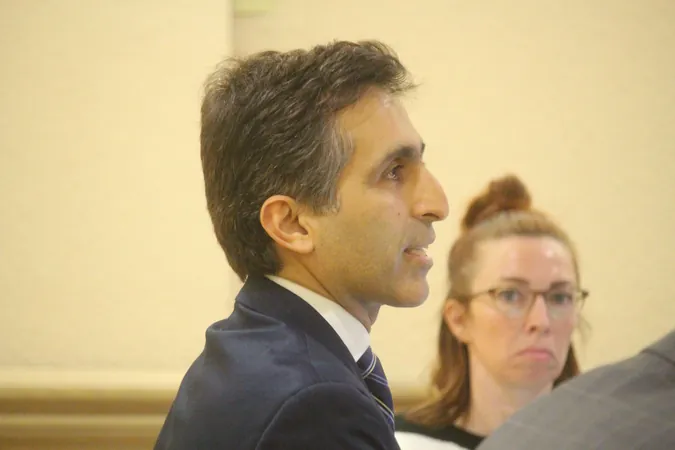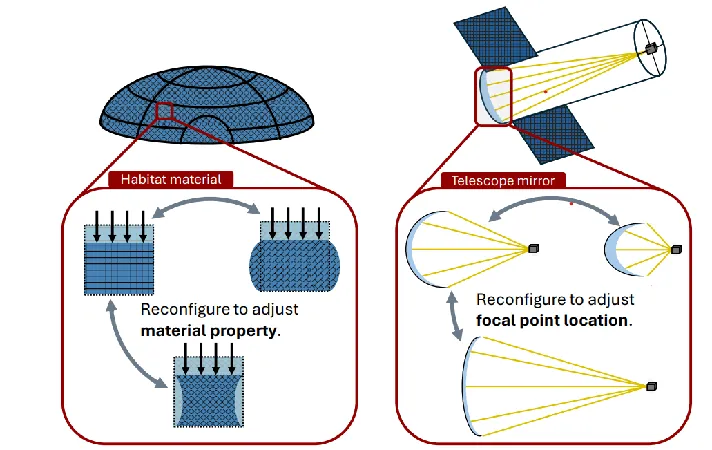
Unlocking the Secrets to Preventing Dementia: Three Key Factors You Must Know!
2024-12-09
Author: Noah
For many, the thought of dementia triggering memory loss seems like an unavoidable aspect of growing older. This brain-affecting disorder is not a single disease but an umbrella term for a range of symptoms resulting from damage to brain cells. While Alzheimer's disease is the most prevalent form, there are other varieties like vascular dementia and Lewy body dementia, each presenting unique challenges.
A staggering 10% of adults over 65 are currently living with dementia, and if trends continue, this figure could rise to 12 million by 2040—an alarming prospect for families and healthcare systems alike. However, a recent in-depth study spearheaded by researchers from the RAND Corporation offers proactive solutions that might help change this trajectory.
The Three Critical Factors in Dementia Prevention
In this comprehensive examination involving over 20,000 seniors over 30 years, researchers identified three significant factors that contribute greatly to the risk of developing dementia:
1. Engagement in Hobbies
Picking up a hobby is more than just a pleasant pastime; it engages the mind and gives individuals a sense of purpose, crucial for cognitive health.
2. Maintaining a Healthy Weight
Obesity has been linked with poor blood circulation, which poses a risk for dementia. Healthy weight management is vital for keeping the brain functioning optimally.
3. Staying Physically Active
Engaging in regular exercise is essential for good blood circulation, which directly benefits brain health. A sedentary lifestyle significantly elevates the risk of cognitive decline.
Peter Hudomiet, the lead economist of the study, emphasizes that these lifestyle changes can help individuals foster brain health at any age.
The Alcohol Paradox: Friend or Foe?
Interestingly, the research found that alcohol consumption has a complex role in dementia risk. While heavy drinking is a clear deterrent to brain health, studies suggest that moderate drinking—perhaps a glass of wine a day—might even be associated with a lower risk of dementia for some individuals, specifically those at risk for cardiovascular issues. However, the dangers are magnified with excessive consumption, leading to potential alcohol-related brain damage, vascular damage, and significantly increasing the threat of strokes.
Barriers and Solutions Post-Diagnosis
What happens once dementia is diagnosed? The study didn’t just stop at prevention. Researchers explored how people react to a diagnosis and discovered that financial constraints often pose the biggest hurdle. Many individuals resort to proactive preparations, such as arranging finances and finding safer living options. However, the expenses associated with memory care can be overwhelming.
Proactive Steps Towards Healthy Aging
Awareness is key! Knowing your risk factors means you can take preemptive measures. As Susann Rohwedder, a senior economist at RAND points out, having this information empowers individuals to make informed lifestyle choices. This can include maintaining physical activity, regulating weight, and keeping the mind stimulated through engaging hobbies.
In conclusion, while there is no guaranteed way to prevent dementia, adopting a lifestyle that includes active participation in hobbies, keeping fit, and managing weight may just be the secret to preserving brain health as we age. The journey towards a healthier brain starts now!
Make sure you stay ahead of this growing public health issue—understand your risks, act on them, and help ensure a brighter future for you and your loved ones. Want to stay updated? Subscribe for the latest insights and tips on brain health!









 Brasil (PT)
Brasil (PT)
 Canada (EN)
Canada (EN)
 Chile (ES)
Chile (ES)
 España (ES)
España (ES)
 France (FR)
France (FR)
 Hong Kong (EN)
Hong Kong (EN)
 Italia (IT)
Italia (IT)
 日本 (JA)
日本 (JA)
 Magyarország (HU)
Magyarország (HU)
 Norge (NO)
Norge (NO)
 Polska (PL)
Polska (PL)
 Schweiz (DE)
Schweiz (DE)
 Singapore (EN)
Singapore (EN)
 Sverige (SV)
Sverige (SV)
 Suomi (FI)
Suomi (FI)
 Türkiye (TR)
Türkiye (TR)